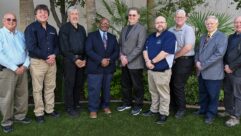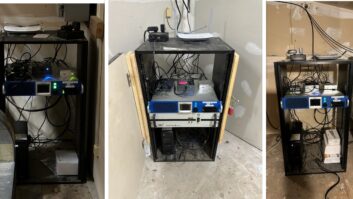The case of the roving translators has been settled.
The FCC Media Bureau signed a consent decree with Broadcast Towers Inc., licensee of five translators in Florida, ending an investigation that began in 2009.
The agreement means the agency stops an investigation into a unique case involving what some broadcasters considered an abuse of the translator process: a series of translator moves from the Florida Keys to the Miami market.
The BTI FM translators involved are W237CI, Miami Beach, W237DK, Leisure City, W258BQ, Homestead, DW224BW, Key Largo, and W296BP, Coral Gables.
BTI and its sole proprietor, William R. Lacy, agreed to stop broadcast operations in Florida. The FCC said it would cancel authorizations for the five translators and dismiss any pending applications related to them as well as other FM translator applications by BTI that propose communities of license in Florida. BTI agreed to spin off W285EH, Key West, by Dec. 31, or the FCC will cancel that authorization.
Lacy agreed that in future any transmitter site he specifies in any application will be available for continuous use, and he pledged to provide “dependable service” on FM translator stations, according to the agency. BTI and Lacy also pledged to file only major change applications, rather than a series of minor change applications, to accomplish any major change in facilities of any FM translator station.
The case evolved as follows.
BTI acquired CPs for the five Florida translators during a filing window in 2003. In 2007, it filed a series of minor mod applications.
The FCC stated that for each translator: “The application specified a roadside location for the translator’s transmitter. Upon grant of this application, Lacy drove out to the location, parked his vehicle and operated the translator for two to five hours using a telescoping antenna and portable generator. Lacy then discontinued operations, disassembled the equipment, loaded it back up into his vehicle, and drove away.”
BTI would then file an application for a license to cover the translator’s operations from the new roadside location and repeat the process, each time specifying a location closer to Miami, according to the Media Bureau.
It continued: “While an application was pending, Lacy would drive out to the currently authorized location for the translator, park his vehicle and operate the translator for two to five hours once every 30 days. This ensured that BTI did not need to seek commission approval for the time the translator was off-air.”
Clear Channel and WXDJ Licensing brought this conduct to the FCC’s attention, alleging BTI abused the translator process by not providing dependable translator service, not notifying the FCC of intent to end operations for 30 or more days, not posting required station information and unattended operation. They also claimed that in some instances BTI lacked reasonable assurance of site availability.
In 2009, the FCC sent letters of inquiry to BTI asking about the allegations. For each translator, the commission said it found no evidence of any current or prior construction of FM translators at the latest and the previously authorized transmitter sites.
Lacy argued he had assurance all the sites he’d specified in the applications would be available because they were mostly public roads, parks or parking lots. He operated every translator at least once every 30 days and stated the FCC has no minimum operating schedule for FM translators.
He acknowledged there were no signs displaying station calls or contact information on the structure supporting the antenna at any of the sites. But he said the unattended operation charge was bogus because he was present when he operated any of the translators.
The consent decree does not require Lacy to make a “voluntary contribution to the U.S. Treasury” — because he provided sufficient proof that he doesn’t have the funds to pay, the FCC said.
— Leslie Stimson












